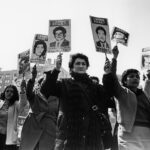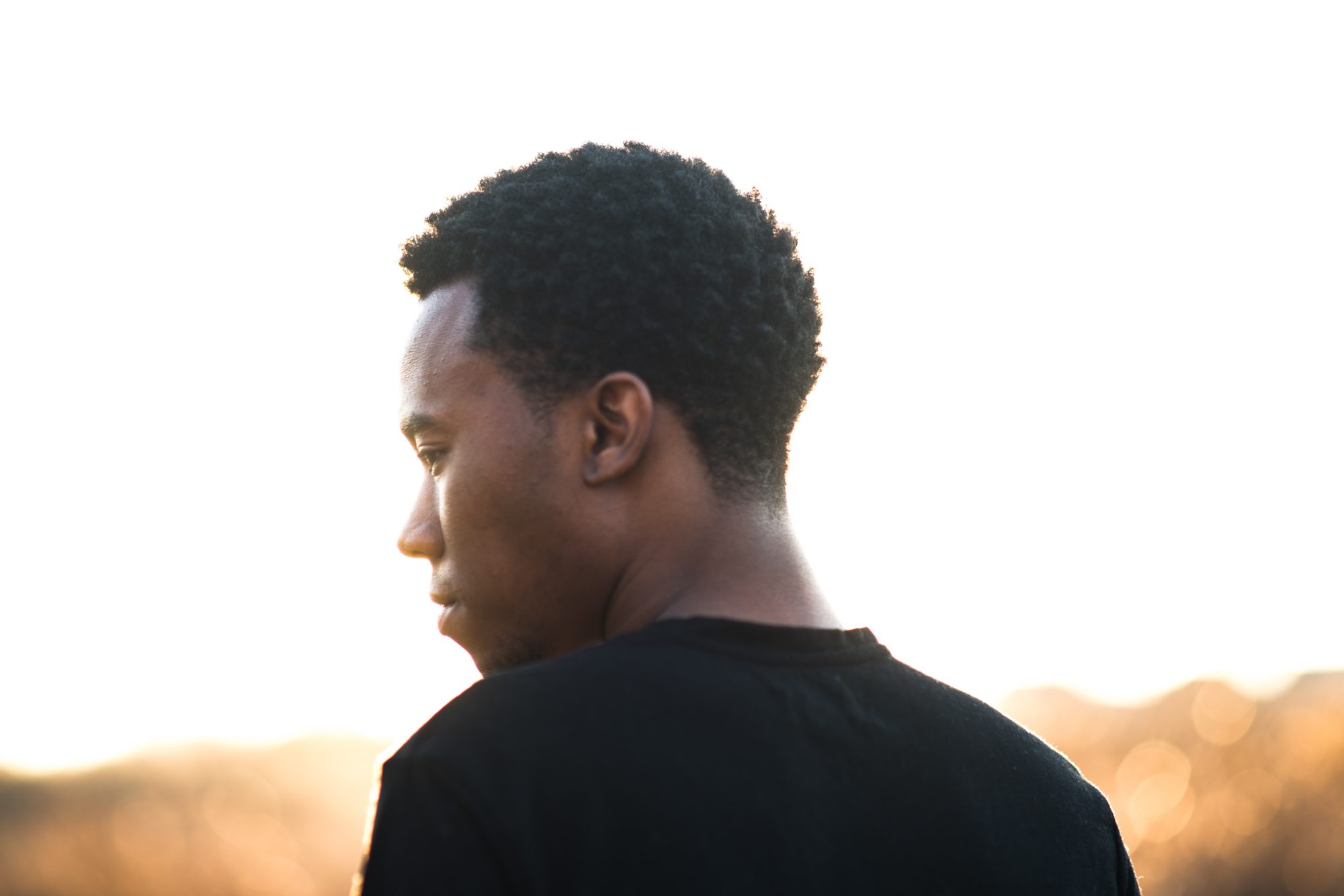One sunny afternoon in October, my family traveled to Purdue University. Much like the atmosphere inside of our car, the campus was quiet, but we were quiet for very different reasons. While the campus was recuperating from the previous night’s homecoming festivities, my family was quiet in anticipation of what was to come. See, this wasn’t just any Sunday morning ride. That day, Purdue University would unveil the Winifred and Frieda Parker dorms, named after the first two Black women to integrate housing on Purdue’s campus. To the school, students, and alumni they were honoring “trailblazers,” but for me they were honoring my grandmother and great aunt.
As my family walked from the parking lot to the new halls, I tried to imagine what the experience must have been like for my grandmother and great aunt in 1940s America. They both attended Purdue, a school in rural Indiana, before the civil rights movement when Black people could not get the most basic of services in the town of West Lafayette; and long before one could even dream of the landmark decision of Brown v. Board of Education. Yet, they persisted.
The president and policymakers alike have created a platform around building a foreign policy solely for the middle class. Yet, rarely is the Black community considered in this conversation or a part of this demographic.
My great grandfather Frederick Parker truly believed that in order for his daughters to have a meaningful university experience, they had to get their education not only inside the classroom but on the entire campus. He didn’t want them to just survive, he wanted them to thrive. He saw past their potential discomfort and understood this bold push for integration would change the experience for students forever. My great grandfather, like many of his peers, believed that for Black people, education was the great equalizer. His educational advancements and efforts to advance access to higher education were critical strides toward progress, but like a relay race, it was far from over.
So, what makes my family story important? Well, in the past 12–24 months we have heard a lot about the importance of equity, especially as we attempt to unite the country; and from listening to President Joe Biden, it appears he will build on the back of the “middle class.” I have a suspicion, however, that the middle class does not look like me, my family, or my community.
The president and policymakers alike have created a platform around building a foreign policy solely for the middle class. Yet, rarely is the Black community considered in this conversation or a part of this demographic. You cannot address the middle class without addressing the systems of racism that are so complex, that even with education, it does not always bring equity in wealth across our community. Without addressing this, among other absences, the Biden administration’s foreign policy is doomed to be weak at best, or fail at worst.
MY FAMILY’S STORY
My great grandfather, like all Black people at the time, was no stranger to the impacts of systemic disenfranchisement. He was an orphan, who after being recruited to Washington DC’s Dunbar High School, later became one of a few distinguished Black men to attend Amherst College at the turn of the 20th century. Still, his accolades were not his legacy — his life’s mission was to do everything in his power to provide other Black people access to quality education because that was what changed his life. He understood that, whether it was his daughters or other Black men and women, access to higher education could change their trajectories for generations.
With the help of Charles Hamilton Houston, he wrote letters to numerous people including then-Indiana Governor Ralph Gates. He reminded him of Purdue’s own rule that all First-Year women live on campus; as well as the university’s status as a “land-grant institution,” one that was supported by state taxes, including his, so why couldn’t his children be afforded their rights like everyone else? In January 1947, all his hard work paid off. The governor and the university agreed that Winifred and Frieda could move into the dorms, making them the first Black women to integrate the space.
I recognize that to many this story may sound unique, but it’s not. It’s one of the many narratives in a book of untold stories about my community. This story isn’t just about my grandmother and great aunt being the first to integrate the dorms. Rather, it is the story of the constant obstacles and resilience it took — and continues to take — for Black people to carve out space in America. This story is a story about Black people attempting to do what should be ordinary tasks, attempting to exist, in a country where they were told they did not matter. My family, like other Black families, relied on each other and their communities to support them through personal and systemic challenges. It was their community that allowed them to be affirmed, make it through, and fight systems that were inherently not designed for them.
INCLUDING BLACK PEOPLE IN THE “MIDDLE CLASS”
There have always been members of the Black community that existed in the middle class, but they have been continually silenced, ignored, or pushed out of the narrative because systems intentionally are not designed for them. Two of the key factors in Biden’s infrastructure plan are the creation of jobs and investment in the retention and growth of the socio-economics in the middle class through channels such as housing. While this sounds wonderful, Black communities have heard these speeches before, and understand they aren’t speaking to us.
In order to have an authentic conversation around these issues, with the Black community included, the administration would be required to address issues on skilled workers in urban areas, such as Detroit or Newark; or address the long-term ramifications of unemployment in sectors like agriculture, and the automobile industry. In addition, they would have to discuss the gap in home ownership, acknowledge the ways in which predatory lending, impacts of redlining, or the lack of enforcement of policies, such as the GI bill, made it impossible to access to the educational or socio-economic prosperity that was promised.
To acknowledge this Black middle class means we must change systems that would require us to listen to these stories — like my family’s — and include these experiences in the “middle class” experience. For real change to occur, that is both equitable and inclusive, as a nation we have to look past the initial shock of the action, and understand the consequences of a myriad of systems and circumstances that force communities of color to triumph. After two years, trying to unpack the US’ issues with racial equity, we must begin to recognize that we are fundamentally built on a system that was designed to disenfranchise an entire population of people.
NAVIGATING THE SYSTEMS OF POWER
My great grandfather understood that systems were not built for him, his family, or his community, but that wasn’t going to be a reason to be stopped. He truly believed that access to higher education could change the trajectory for Black people generationally, and he was right. His push for generational education arguably had a positive impact on the economic ascendancy of the family. But did this economic shift mitigate other forms of systemic discrimination they, their children, and grandchildren have faced? Well, not really. But, I think that speaks to the larger narrative of the resilience necessary to navigate these systems of power as well as having these stories available to all.
My family was under no delusion that life would be easy when they set out to change the system at Purdue, or anywhere else that included the Black existence in America. Their choice to integrate was not in the hopes of glory but simply an opportunity for two women to get a proper education. They believed in a world of possibilities and a hope which was always worth embracing.
If we are truly going to create equity, we must begin to learn to acknowledge the courage and strength of entire populations to continue to carve space for themselves in systems where they have never been seen. It should force us to reflect on the choices that we make, and think about tangible ways to create positive impact. It’s a reminder that when you are tired, there is still so much more you can do. To many, this story is one of a family who fought a system to change something for the better. For me, it’s a reminder of what love and resilience looks like, and what it takes to create the change you want to see in this world.
Mari Faines (She/Her) is a social justice, diversity & equity activist, podcast host, and the current Director of Communications and Outreach for Physicians for Social Responsibility. Her research specializes in conflict resolution, transitional justice, and racial and systemic disparities.





















